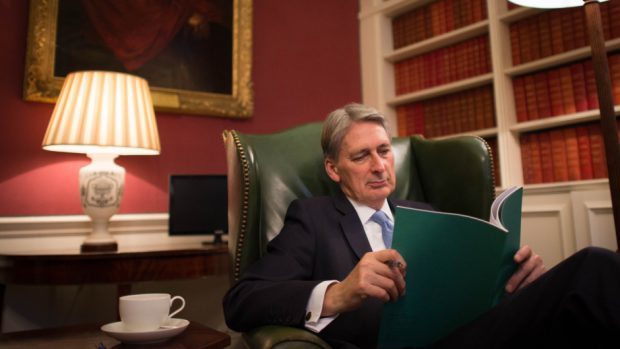Philip Hammond will make his first Autumn Statement as chancellor after Prime Minister’s Questions today.
The speech in the House of Commons is an opportunity for the government to update MPs on its spending plans following the budget earlier this year.
The Treasury has indicated measures to help low-paid workers and an investment in affordable housing will be at the heart of the speech.
However, the Scottish Government is concerned about the potential financial ramifications of Mr Hammond’s announcements.
“Our discretionary budget will have been cut by £3.3 billion in real terms, or 10.6%, since 2010-11 and within this, our capital budget will have fallen by £600 million or 15.7% – this is unacceptable,” he said.
“I have written to the Chancellor and urged him to end the damaging austerity agenda when he sets out the autumn statement later today.”
His sentiments were echoed by Kezia Dugdale, the Scottish Labour leader, who called on the Chancellor to improve equality by investing in public services, like schools and the NHS.
“The Tory mantra of cut, cut and cut again simply isn’t working. Today the government should admit that fact and bring the cuts to an end,” she said.
But Scottish Conservative leader Ruth Davidson said: “Today’s statement is the start of a massive change in the way Britain will work in the future.
“As of next year, the Scottish Parliament will be one of the most powerful and accountable devolved Parliaments in the world.
“The SNP will no longer just be making decisions on how to spend money, it will have to decide how to raise it from Scottish taxpayers too.
“And my message to the SNP is this: there is nothing fair about its plans to tax families in Scotland more than other parts of the UK, and it will only make us a less competitive place to do business.
“People will also want to see a positive reaction from the SNP today. Griping and sniping about the UK Government isn’t enough. It is time to stop dithering in government and get on with governing.”
Whitehall said Mr Hammond’s package was designed to “improve the living standards of ordinary working class people and their families”, in line with the ambitions set out by Mrs May in her keynote speech to the Conservative conference last month.
But the Universal Credit reform is unlikely to appease critics who have been calling on the Government to reverse changes introduced by the Chancellor’s predecessor George Osborne, which will drastically reduce the amount workers can earn before losing benefits.
